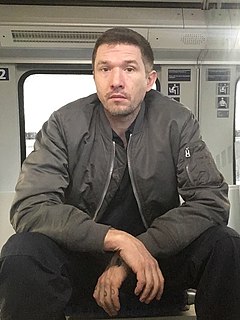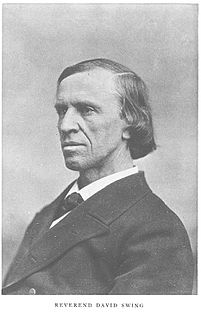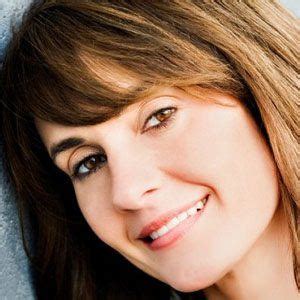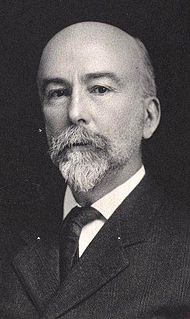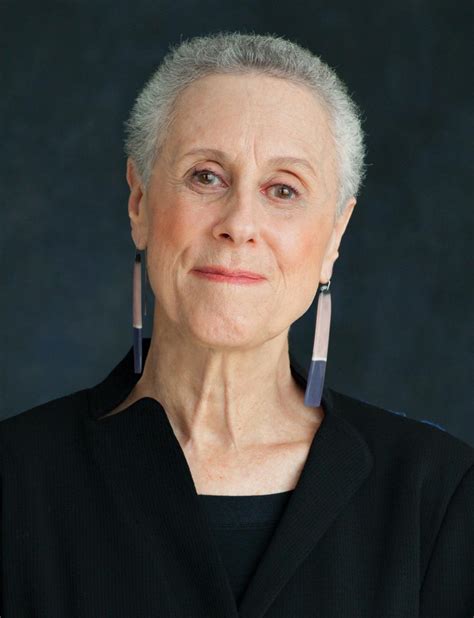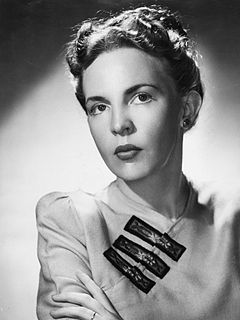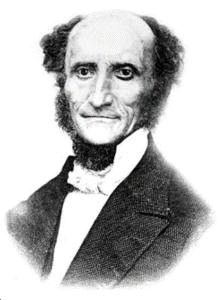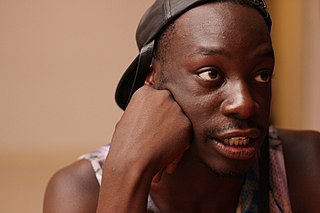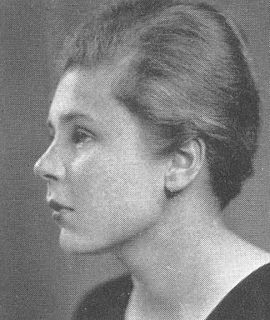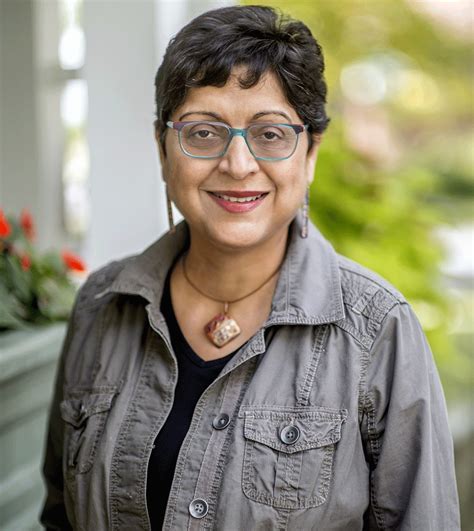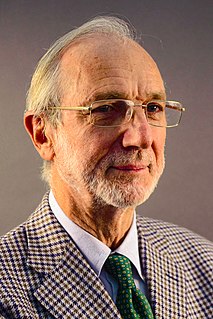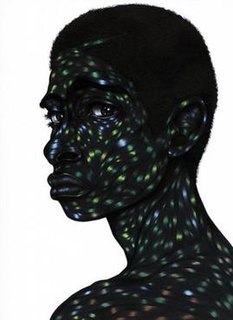Top 415 Geography Quotes & Sayings - Page 7
Explore popular Geography quotes.
Last updated on November 19, 2024.
It is possible I never learned the names of birds in order to discover the bird of peace, the bird of paradise, the bird of the soul, the bird of desire. It is possible I avoided learning the names of composers and their music the better to close my eyes and listen to the mystery of all music as an ocean. It may be I have not learned dates in history in order to reach the essence of timelessness. It may be I never learned geography the better to map my own routes and discover my own lands. The unknown was my compass. The unknown was my encyclopedia. The unnamed was my science and progress.
First, he says, you have to go out into the world. This is not a simple matter of going outside one's door. No, that is simply going out. That's what one does when one is on the way to the store to buy a loaf of bread, some cheese, and a bottle of wine. When one goes out into the world, one is shedding preconceptions of past paths and ideas of past paths, and trying to move freely through an unsubstantiated and new geography.
What are your choices? Whom are your choices for? Not just for yourself. Chose now whom you will serve, and that choice is going to affect the next generation, and the next generation, and the next. Choice never affects just one person alone. It goes on and on and the effect goes out into geography and history. You are part of history and your choices become part of history.
History is not everything, but it is a starting point. History is a clock that people use to tell there political and cultural time of day. It is also a compass that people use to find themselves on the map of human geography. History tells a people where they have been and what they have been, where they are and what they are. Most important, history tells a people where they still must go, what they still must be. The relationship of history to the people is the same as the relationship of a mother to her child.
Iran is a powerful country. Iran is a big country with a large population, natural resources, human resources. But we are a country that is content with its size, content with its geography. We have not engaged in any military adventures in the past 250 years. We don't see any of this as Iran trying to dominate this region. We see some people panicking in our region and we believe there is no need to panic. We are prepared to work with all our neighbors to ensure the security and prosperity of our region.
The modern Gamaliel should teach ethics. Ethics is the science of human duty. Arithmetic tells man how to count his money; ethics how he should acquire it, whether by honesty or fraud. Geography is a map of the world; ethics is a beautiful map of duty. This ethics is not Christianity, it is not even religion; but it is the sister of religion, because the path of duty is in full harmony, as to quality and direction, with the path of God.
Unless the Arab states give Israel formal recognition, within secure, recognised and mutually agreed boundaries, as a permanent feature of the geography and politics of the Middle East. But if Israel is to obtain this recognition, she must, in a settlement, put an end to the territorial occupation which she has maintained since the war of 1967; the nine members of the European Community have declared that this is an essential element in a settlement. On behalf of the British Government I underline that need today.
Because whipping an atlas at Jackson's head while he was flirt-touching that Frankie girl in geography would have been very satisfying. And beating him with the Eiffel Tower snowglobe while he kissed Cleo in French would have been tres cathartic. But she hadn't. Instead she'd been egg-like: a hard shell on the outside, and a runny mess on the inside.
The very best [infographics] engender and facilitate an insight by visual means - allow us to grasp some relationship quickly and easily that otherwise would take many pages and illustrations and tables to convey. Insight seems to happen most often when data sets are crossed in the design of the piece - when we can quickly see the effects on something over time, for example, or view how factors like income, race, geography, or diet might affect other data. When that happens, there's an instant "Aha!".
The meaning of geography is as much a sealed book to the person of ordinary intelligence and education as the meaning of a great cathedral would be to a backwoodsman, and yet no cathedral can be more suggestive of past history in its many architectural forms than is the land about us, with its innumerable and marvellously significant geographic forms. It makes one grieve to think of opportunity for mental enjoyment that is last because of the failure of education in this respect.
What's your story? It's all in the telling. Stories are compasses and architecture; we navigate by them, and to be without a story is to be lost in the vastness of world that spreads in all directions like arctic tundra or sea ice. To love someone is to put yourself in their place, we say, which is to put yourself in their story, or figure out how to tell yourself their story. Which means that a place is a story, and stories are geography, and empathy is first of all an act of imagination, a storyteller's art, and then a way of traveling from here to there.
Nothing could have been worse for the development of my mind than Dr. Butler's school, as it was strictly classical, nothing else being taught, except a little ancient geography and history. The school as a means of education to me was simply a blank. During my whole life I have been singularly incapable of mastering any language. Especial attention was paid to versemaking, and this I could never do well. I had many friends, and got together a good collection of old verses, which by patching together, sometimes aided by other boys, I could work into any subject.
Women and LBGT people have the advantage that they are everybody's son, daughter, cousin, nephew, aunt, uncle. They are in a position to change hearts, and you saw it happen actually. African-Americans, not so much. They are separated from the white oppressive population by geography, housing, segregation, centuries of slavery. There is a tremendous wall between black America and white. I would say you open the door with the force of law, and then you can start to change hearts.
Michael [Jackson] reconstructed his face and deconstructed the African features into a spooky European geography of fleshly possibilities, and yet what we couldn't deny, that even as his face got whiter and whiter his music got Blacker and Blacker. His soul got more deeply rooted in the existential agony and the profound social grief that Black people are heir to.
Let's say I take a picture of the Eiffel Tower in front of the casino in Las Vegas. That type of pattern might suggest I'm just a tourist. But if my next one is of another dam or electrical station, someone might say 'Well, that's kind of strange'. What do the different pieces of the puzzle mean when you put them together? And one of the advantages of geographic profiling in geography is a common denominator for so many different types of information sources.
I must study Politicks and War that my sons may have liberty to study Mathematicks and Philosophy. My sons ought to study Mathematicks and Philosophy, Geography, natural History, Naval Architecture, navigation, Commerce and Agriculture, in order to give their Children a right to study Painting, Poetry, Musick, Architecture, Statuary, Tapestry and Porcelaine. (12 May 1780)
The American people are not ready for the idea that everyone has at least a moral right to good, timely health care. They do agree they have a moral right, in critical cases, to have anything done to save their life, but they don't believe that anyone has a right not to fall that sick to begin with. So if you ask me, "Are we ever succumbing to some notions of solidarity as a nation?," I would say, "Not at all." I would describe us as a group of people who share a geography. That's a better description of Americans than that we're a real nation with a sense of solidarity.
A lot of the reason I left New York, in addition to being so broke, was that I just felt I was becoming provincial in that way that only New Yorkers are. My points of reference were really insular. They were insular in that fantastic New York way, but they didn't go much beyond that. I didn't have any sense of class and geography, because the economy of New York is so specific. So I definitely had access and exposure to a huge variety of people that I wouldn't have had if I'd stayed in New York - much more so in Nebraska even than in L.A.
It is frequently the tragedy of the great artist for example Vincent Van Gogh, as it is of the great scientist, that he frightens the ordinary man. If he is more than a popular story-teller it may take humanity a generation to absorb and grow accustomed to the new geography with which the scientist or artist presents us. Even then, perhaps only the more imaginative and literate may accept him. Subconsciously the genius is feared as an image breaker; frequently he does not accept the opinions of the mass, or man's opinion of himself.
Our patriotic fervor was the result of the old and widespread belief in the idea of American exceptionalism, the idea that America was a new thing in history, different from other countries. Other nations had evolved one way or another, evolved from tribes from a gathering of clans, from inevitabilities of language and tradition and geography. But America was born, and born of ideas: that all men are created equal, that they have been given by God certain rights that can be taken from them by no man, and that those rights combine to create a thing called freedom.
The great affair, the love affair with life,
is to live as variously as possible,
to groom one's curiosity like a high-spirited thoroughbred,
climb aboard, and gallop over the thick, sun-struck hills every day.
Where there is no risk, the emotional terrain is flat and unyielding,
and, despite all its dimensions, valleys, pinnacles, and detours,
life will seem to have none of its magnificent geography, only a length.
It began in mystery, and it will end in mystery,
but what a savage and beautiful country lies in between.
In our own beginnings, we are formed out of the body's interior landscape. For a short while, our mothers' bodies are the boundaries and personal geography which are all that we know of the world...Once we no longer live beneath our mother's heart, it is the earth with which we form the same dependent relationship, relying...on its cycles and elements, helpless without its protective embrace.
...It's all sort of dreams and it's all illusion. It's theater; it's not real. We're making up stories, you know, and people tend to run into you and believe you are your characters. And I suppose the funny thing is the longer you go, you do become sort of some version of [your characters]. You both diverge from them - you know - you live, but you also permanently inhabit that geography and that mental space - and so you do morph a little bit. We do become what we imagine.
I am not of the opinion generally entertained in this country [England], that man lives by Greek and Latin alone; that is, by knowing a great many words of two dead languages, which nobody living knows perfectly, and which are of no use in the common intercourse of life. Useful knowledge, in my opinion, consists of modern languages, history, and geography; some Latin may be thrown into the bargain, in compliance with custom, and for closet amusement.
Is it wrong, wanting to be at home with your record collection? It's not like collecting records is like collecting stamps, or beermats, or antique thimbles. There's a whole world in here, a nicer, dirtier, more violent, more peaceful, more colorful, sleazier, more dangerous, more loving world than the world I live in; there is history, and geography, and poetry, and countless other things I should have studied at school, including music.
It's now up to the states to figure out how they implement that definition of a well-rounded education, in other words, where they spend federal funds. The new law, the Every Student Succeeds Act, has suggestions like computer science, health, foreign language and geography. So there's no guarantee the arts will now flourish. Arts advocates are ready to help states and school districts with their plans.
We the undersigned, intend to establish an instruction and training institution which differs from the common elementary schools principally in that it will embrace, outside of (in addition to) the general and elementary curriculum, all branches of the classical high school, which are necessary for a true Christian and scientific education, such as: Religion, the Latin, Greek, Hebrew, German, French and English languages; History, Geography, Mathematics, Physics, natural history, Introduction to Philosophy, Music, and Drawing.
My parents, grandmother and brother were teachers. My mother taught Latin and French and was the school librarian. My father taught geography and a popular class called Family Living, the precursor to Sociology, which he eventually taught. My grandmother was a beloved one-room school teacher at Knob School, near Sonora in Larue County, Ky.
Something will have gone out of us as a people if we ever let the remaining wilderness be destroyed We need wilderness preserved — as much of it as is still left, and as many kinds — because it was the challenge against which our character as a people was formed We simply need that wild country available to us, even if we never do more than drive to its edge and look in. For it can be a means of reassuring ourselves of our sanity as creatures, a part of the geography of hope.
I grew up going around with family, camping and living in a very beautiful mountain valley, knowing the names of the mountains and the rivers. I think it's no accident that I ended up studying the geography of India and knowing the names of the mountains and the rivers and all of that. I loved it. I think it gives a sense of space and a can-do-ness that was very powerful.
[David Lean's] images stay with me forever. But what makes them memorable isn't necessarily their beauty. That's just good photography. It's the emotion behind those images that's meant the most to me over the years. It's the way David Lean can put feeling on film. The way he shows a whole landscape of the spirit. For me, that's the real geography of David Lean country. And that's why, in a David Lean movie, there's no such thing as an empty landscape.
With the defeat of the Reich and pending the emergence of the Asiatic, the African and, perhaps, the South American nationalisms, there will remain in the world only two Great Powers capable of confronting each other-the United States and Soviet Russia. The laws of both history and geography will compel these two Powers to a trial of strength, either military or in the fields of economics and ideology. (2nd April 1945)
I've always wanted to travel. My mom was a geography queen, I knew the atlas, and I looked at her pictures of all her world travels because she traveled a lot before I was born, with my brother. I was always so jealous. I kind of chose a job that would be a way I could see the world without having to pay for it. I'm not going to be a flight attendant. I'm way too busy to be that.
We probably have, right now, after the Civil Rights movement - and this was very unfortunate - the most glaring time of giving up on Africa, saying we're Americans. We are Americans. I'm not arguing that point. So are the Italians. So are the Germans. So are the Jews. We're Americans with an historical geography of origins outside of the United States as all people, maybe except the indigenous Americans who came here so long ago, who have generations of people whose historical origins are right here but whose initial historical origins are somewhere in Asia.
Early on, I settled on the first-person strategy as a way to deal with exposition and world-description issues. As long as the book is, it could have been far longer had I gone with an omniscient third-person narrator, or multiple point-of-view characters, since either of those would have enabled me to impart much more detailed information about the history and geography of the world.
Dreams were the worst. Of course I dreamed of food and love, but they were pleasant rather than otherwise. But then I'd dream of things like slitting a baby's throat, mistaking it for a baby goat. I'd have nightmares of other islands stretching away from mine, infinities of islands, islands spawning islands, like frogs' eggs turning into polliwogs of islands, knowing that I had to live on each and every one, eventually, for ages, registering their flora, their fauna, their geography.
Or perhaps is is that time doesn't heal wounds at all, perhaps that is the biggest lie of them all, and instead what happens is that each wound penetrates the body deeper and deeper until one day you find that the sheer geography of your bones - the angle of your hips, the sharpness of your shoulders, as well as the luster of your eyes, the texture of your skin, the openness of your smile - has collapsed under the weight of your griefs.
The good folks mostly win, courage usually triumphs over fear, the family dog hardly ever contracts rabies: these are things I knew at twenty-five, and things I still know now, at the age of 25 x 2. But I know something else as well: there's a place in most of us where the rain is pretty much constant, the shadows are always long, and the woods are full of monsters. It is good to have a voice in which the terrors of such a place can be articulated and its geography partially described, without denying the sunshine and clarity that fill so much of our ordinary lives. (viii)
By accident of geography, the world's major oil resources are in Shi'ite-dominated areas. Iran's oil is concentrated right near the gulf, which happens to be an Arab area, not Persian. Khuzestan is Arab, has been loyal to Iran, fought with Iran not Iraq during the Iran-Iraq war. This is a potential source of dissension. I would be amazed if there isn't an attempt going on to stir up secessionist elements in Khuzestan.
What a lost person needs is a map of the territory, with his own position marked on it so he can see where he is in relation to everything else. Literature is not only a mirror; it is also a map, a geography of the mind. Our literature is one such map, if we can learn to read it as our literature, as the product of who and where we have been. We need such a map desperately, we need to know about here, because here is where we live. For the members of a country or a culture, shared knowledge of their place, their here, is not a luxury but a necessity. Without that knowledge we will not survive.
Jewish villages were built in the place of Arab villages. You do not even know the names of these Arab villages, and I do not blame you, because these geography books no longer exist; not only do the books not exist, the Arab villages are not there either. Nahalal arose in the place of Mahalul, Gevat - in the place of Jibta, Sarid - in the place of Haneifs and Kefar Yehoshua - in the place of Tell Shaman. There is no one place built in this country that did not have a former Arab population.
We believe in a single fundamental idea that describes better than most textbooks and any speech that I could write what a proper government should be: the idea of family, mutuality, the sharing of benefits and burdens for the good of all, feeling one another's pain, sharing one another's blessings — reasonably, honestly, fairly, without respect to race, or sex, or geography, or political affiliation.
The brain may take advice, but not the heart, and love having no geography, knows no boundaries: weight and sink it deep, no matter, it will rise and find the surface: and why not? Any love is natural and beautiful that lies within a person's nature; only hypocrites would hold a man responsible for what he loves, emotional illiterates and those of righteous envy, who, in their agitated concern, mistake so frequently the arrow pointing to heaven for the one that leads to hell.
It has been said that Canada is bounded 'on the north by gold, on the west by the East, on the east by history - and on the south by friends'.* We hope that will always be the case and we hope it will be the case not only with respect to the United States, your immediate neighbor to the south, but with respect to all your southern neighbors - and ours - who are bound by the great forces of geography and history which are distinctive to the New World.
If there is such a thing as being conditioned by climate and geography, and I think there is, it is the West that has conditioned me. It has the forms and lights and colors that I respond to in nature and in art. If there is a western speech, I speak it; if there is a western character or personality, I am some variant of it; if there is a western culture in the small-c , anthropological sense, I have not escaped it. It has to have shaped me. I may even have contributed to it in minor ways, for culture is a pyramid to which each of us brings a stone.
Where the heart is, there the muses, there the gods sojourn, and not in any geography of fame. Massachusetts, Connecticut River, and Boston Bay, you think paltry places, and the ear loves names of foreign and classic topography. But here we are; and, if we tarry a little, we may come to learn that here is best. See to it, only, that thyself is here;--and art and nature, hope and fate, friends, angels, and the Supreme Being, shall not absent from the chamber where thou sittest.
To conclude this discussion, assessment of justice demands engagement with the 'eyes of mankind',first, because we may variously identify with the others elsewhere and not just with our local community;second, because our choices and actions may affect the lives of others far as well as near;and third,because what they see from their respective perspective of history and geography may help us to overcome our own parochialism.
The world I grew up in had both a literal and mythological quality. We were on the borders of several worlds - the larger black world bordered us on one side. More distantly, there was the larger white world. We interacted with some, but not others. If you think of it as an internal geography, it is a land, a contested space with these very charged historical, cultural, and emotional borders.
We must teach our people the greatness of China's historical culture. In our educational program we must stress Chinese history and geography so that all may know and appreciate China's civilization of five thousand years and the far-flung boundaries of our ancient race. This will engender a greater faith in our own future.
In short, Europe’s colonization of Africa had nothing to do with differences between European and African peoples themselves, as white racists assume. Rather, it was due to accidents of geography and biogeography—in particular, to the continents’ different areas, axes, and suites of wild plant and animal species. That is, the different historical trajectories of Africa and Europe stem ultimately from differences in real estate.
Architecture is art. I don't think you should say that too much, but it is art. I mean, architecture is many, many things. Architecture is science, is technology, is geography, is typography, is anthropology, is sociology, is art, is history. You know all this comes together. Architecture is a kind of bouillabaisse, an incredible bouillabaisse. And, by the way, architecture is also a very polluted art in the sense that it's polluted by life, and by the complexity of things.
Where some may see flat, static narratives, I see a spectrum of tonal gradations and realities. What I am creating is literally black portraiture with ballpoint pen ink. I'm looking for that in-between state in an individual where the overarching definition is lost. Skin as geography is the terrain I expand by emphasizing the specificity of blackness, where an individual’s subjectivity, various realities and experiences can be drawn onto the diverse topography of the epidermis. From there, the possibilities of portraying a fully-fledged person are endless.

